It hasn’t been easy to be inspired by wine lately. Its image has been in decline for some time, lost in a morass of circumstances that, frankly, could take the legs out from under any consumer product. But when you look at wine as a product of farming and artisanal production, it is a bit easier to see why it could make it past the current wave of obstacles from the anti-alcohol lobby, mercenary influencers and superficial marketers.
There are people out there with answers, if you know where to look. Indeed, spending mere moments with French winemaker Michel Chapoutier is enough to change the way you think about wine for life. The northern Rhone producer and fierce defender of the notion of terroir is a veritable encyclopedia of wine knowledge, and he has that rare gift of simplifying complex subjects without rendering the information useless.
His views on wine are as refreshing as they are controversial, primarily because of his willingness to comment on just about any aspect of wine-growing — from the vineyard to the bottle and beyond. His terroir convictions were hardened in the United States, where he worked in the 1990s. Back then, Chapoutier suggested that no one in America was interested in site; it was all about varietal wine. Place became a marketing device rather than the wine’s birthplace, something French wine growers would not accept.
At Chapoutier, the farming is biodynamic — a system he describes first as a philosophy that emphasizes keeping an open mind and working consistently from vineyard to vineyard. He explains that each plot or vineyard block tells a different story, and each year, that story evolves ever so slightly to reflect the growing season or the vintage’s climate. The knack is to farm every plot in a way that, when all things are equal — other than the weather — the resulting fruit and wine tell a different story every year.
But how does one explain the concept of biodynamic farming, versus organic and/or conventional grape growing, and how does it relate to the wine? Chapoutier explains, “Chemical [conventional] farming is, I have a headache and I will take an Aspirin. That’s interesting because we don’t know if it’s [the headache] a disease or a symptom.
“Organic farming is: I have a headache, so I will not take a chemical molecule [Aspirin], but instead I will take a natural Aspirin molecule. I will use willow bark, boil it and you will have an herbal tea. But we are still being corrective.
“When we arrive at biodynamics, so I have a headache, why? Then the question becomes more important than the answer.” Chapoutier goes on to suggest that we all need to learn to be more comfortable asking questions. “Regarding the headache, is it my blood pressure? What can I do to address that, or is it my cholesterol?” He applies these questions to every aspect of wine growing in his vineyards, hoping they are the key to making wines of place.
What I appreciate most about the Chapoutier brand — and what should appeal to all wine drinkers — is his pride in crafting regional wines with the same dedication as his most prestigious labels. He says, “The aim is always to convey the same love of wine, to give complete beginners a chance to discover its diversity.” Note to B.C. producers: There is plenty of room for improvement with your entry-level wines. It is one of the best ways to build a loyal following for all your wines.
Chapoutier distinguishes his wines by focusing on how they pair with food. He believes many winemakers make bold wines that don’t complement meals, whereas Chapoutier prioritizes texture and flavour over strong fruit notes. For him, wine should serve gastronomy, making the questions around pairing more significant than the answers.
Weekend wine picks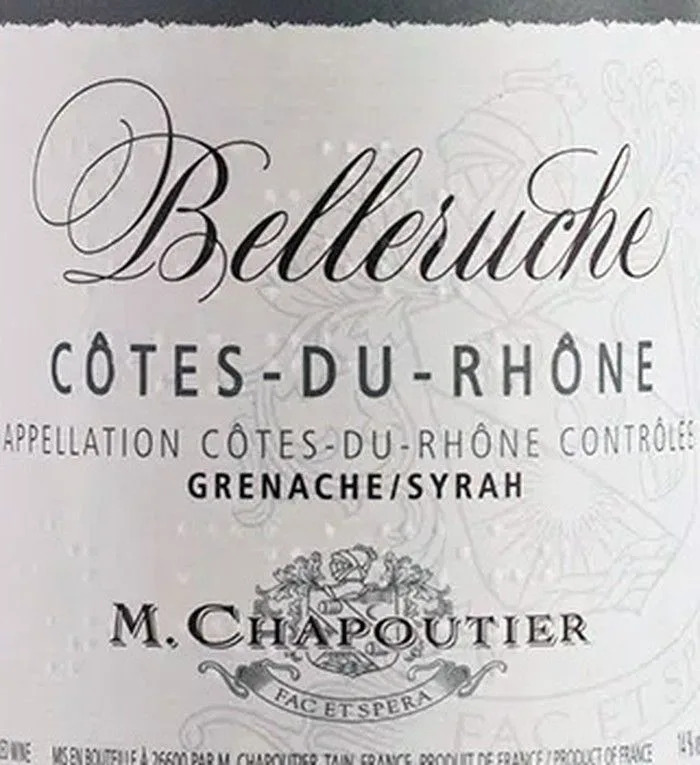 M. Chapoutier Belleruche Côtes du Rhône Rouge 2021, Rhône Valley, France
M. Chapoutier Belleruche Côtes du Rhône Rouge 2021, Rhône Valley, France
$20.99 I 89/100
UPC: 03391181110136
Classic Chapoutier, biodynamically farmed, vinified in concrete and stainless to showcase the fruit, add texture, and made with the same precision as his $200 wines. Year in and year out, it is consistently one of the best-value red blends on the market, and the latest is no exception. You can expect a gentle, round, easy-sipping style, but it remains a wine of flavour, pitching red and black fruits, black pepper and a dusting of garrigue to liven up its youthful but soft tannins. It is a winner.
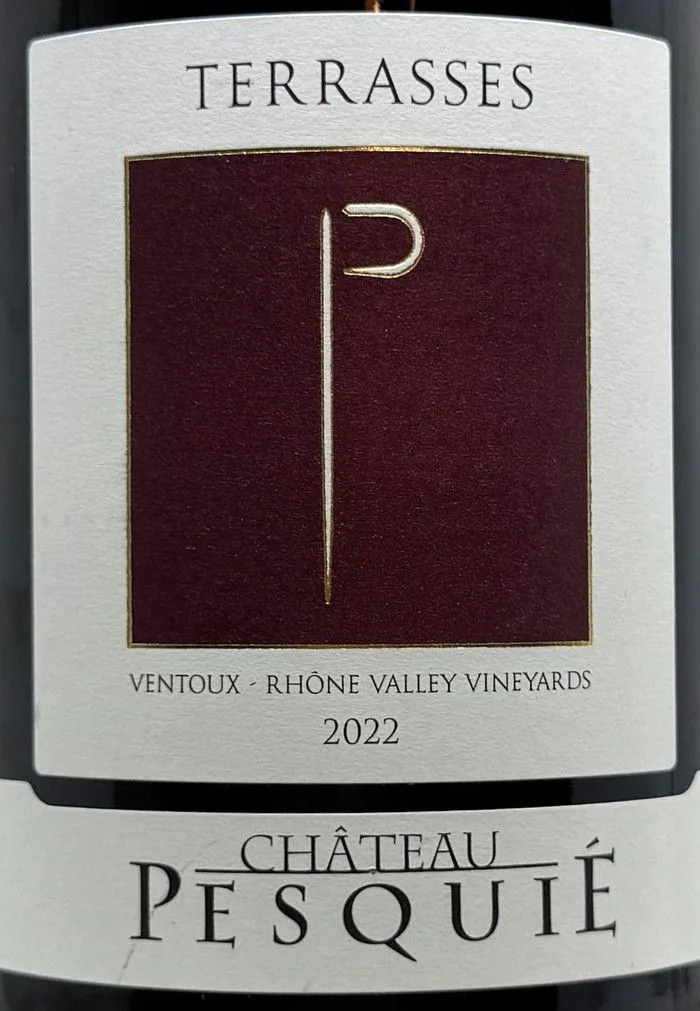 Château Pesquié Terrasses Rouge 2022, Ventoux, France
Château Pesquié Terrasses Rouge 2022, Ventoux, France
$21.99 I 90/100
UPC: 3760149591032
The property is certified organic and the farming and winemaking techniques are Demeter-certified biodynamic. The blend is 60/35 Grenache/Syrah with a mix of local varieties that, post-ferment, are aged for several months in stainless steel and cement. The nose is a black raspberry, cherry and mulberry affair that spills onto the palate. There is also an attractive stony mineral underside that stiffens a fresh finish. There is excellent value here. Share with pizzas, kebabs, charcuterie, vegetable pies, and terrines.
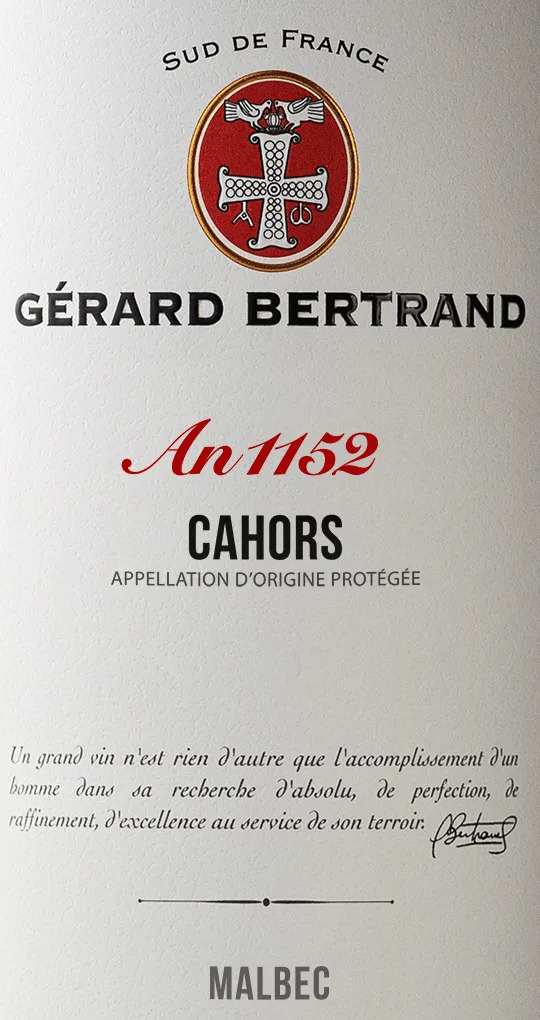 Gérard Bertrand An 1152 Cahors Malbec 2020, Sud de France, France
Gérard Bertrand An 1152 Cahors Malbec 2020, Sud de France, France
$29.99 I 89/100
UPC: 3514123127874
Expect a deep inky purple colour, offering a combination of sweet blackberry, cassis and boysenberry, alongside anise, dried lavender and gravel. Cahors can often be more structured and rustic than Argentine Malbec, but this strikes a nice balance between the two, with lush, opulent fruit that is balanced by a gravelly minerality and firm-grained tannins that will reward careful cellaring over the next three to four years.
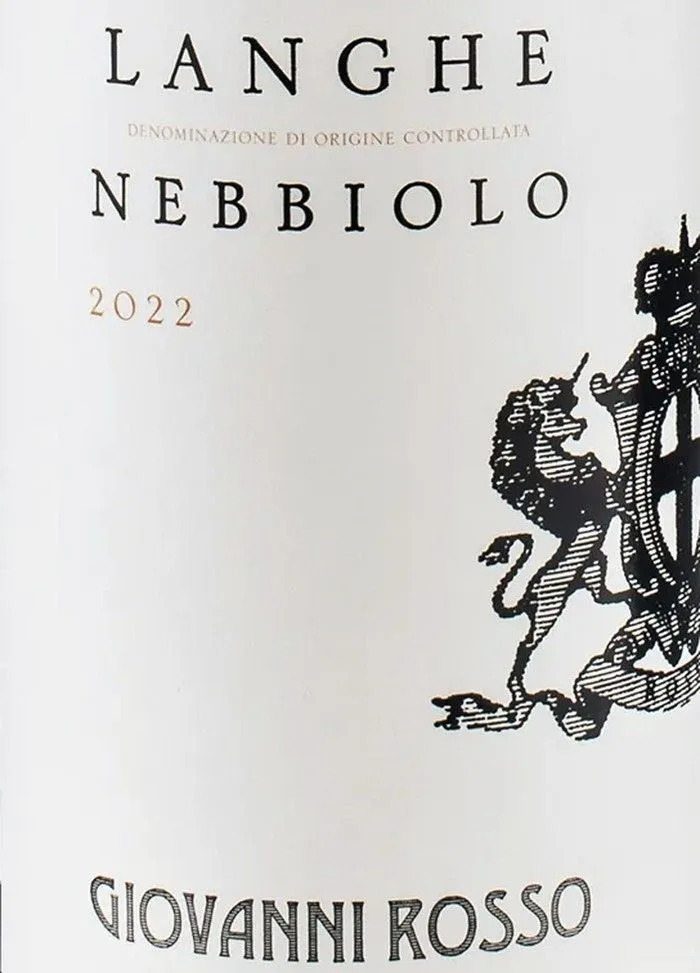 Giovanni Rosso Langhe Nebbiolo 2022, Piedmont, Italy
Giovanni Rosso Langhe Nebbiolo 2022, Piedmont, Italy
$31.99 I 91/100
UPC: 8028981037091
Burgundy-trained winemaker Davide Rosso is the person behind one of Barolo’s more intriguing producers. The Rosso family farms use organic and biodynamic methods with minimal intervention. The wines ferment in cement tanks with native yeasts and are aged for several months in large oak vats, offering a blend of red fruits, spice and engaging savoury notes. A rising star in this market is the Langhe Nebbiolo. Fresh, elegant, and made for early drinking, it can overwhelm you with its fragrance and flavours — a true baby Barolo at an affordable price.
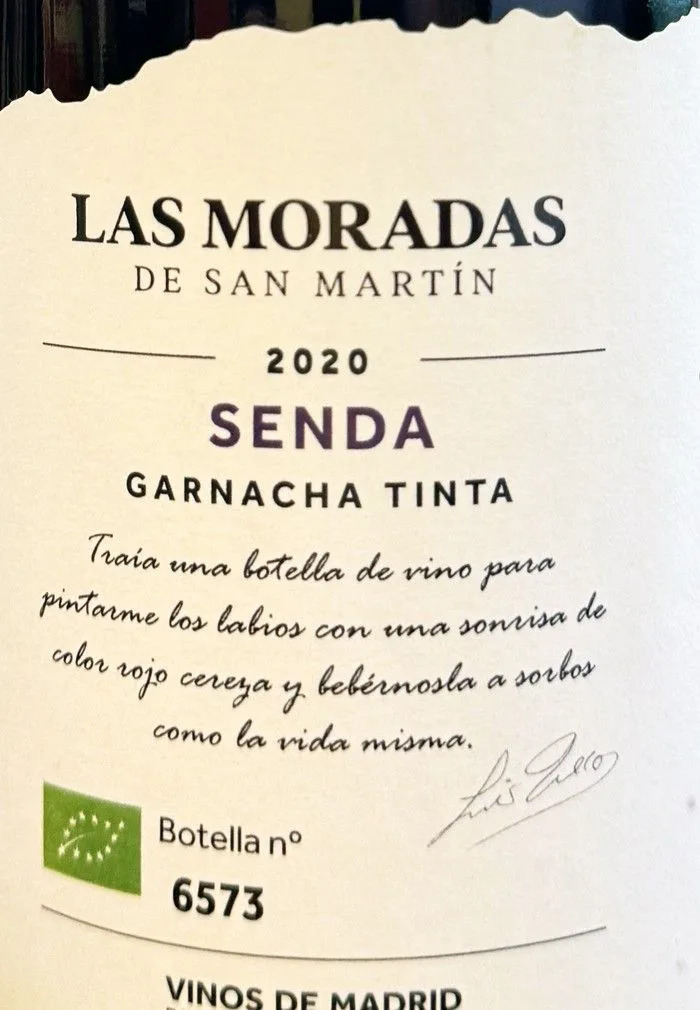 Las Moradas de San Martin Senda 2020, Madrid, Spain
Las Moradas de San Martin Senda 2020, Madrid, Spain
$30.99 I 90/100
UPC: 08437010475108
Las Moradas de San Martin was established to revive the centuries-old vineyards of Garnacha, cultivated since the 12th century. Situated in the hills outside Madrid, the vineyard benefits from its altitude (900 metres) and sandy, granitic soils. Winemaker Isabel Galindo practices both organic and biodynamic farming, cultivating dry-farmed bushvine Garnacha that offers distinctive wild raspberry flavours and nuances of scrubland. This one is for discerning palates.
Calendar and other items
• Tickets to the 2026 Vancouver International Wine Festival, scheduled for March 7-14 with the theme region France, go on sale Nov. 19 at 9:30 a.m. Trade days passes will go on sale Dec. 10, while winery dinner tickets go on sale Jan. 14. Tickets for all remaining public events go on sale on Jan. 21, while trade events go on sale Jan. 28 You can purchase tickets online or by phone from Monday-Friday, 9:30 a.m.-4:30 p.m., at 604-873-3311 or toll free at 1-877-321-3121.
• Elephant Island Little King NV Méthode Traditionelle Sparkling Wine is a distinctive B.C. offering that benefits both its recipient and new parents. It is an apple sparkling wine made in the traditional champagne method, with a framboise dosage. The bouquet presents an inviting blend of green Granny Smith apple aromas, mixed with light autolytic, leesy notes. The attack is a mix of intense fresh apple bite that permeates its delicate, nearly dry finish. The Little King lives in memory of Del and Miranda’s son, Rex, who tragically died in 2002 as a result of an unsafe sleeping environment while he was in the hospital. This year, for the first time, $14 from each bottle sale will be donated to OneSky, a South Okanagan program that provides prenatal classes, postpartum circles, and essential supplies for new parents and young families. In earlier years, $80,000 in proceeds supported B.C. Children’s Hospital and its Nursing Education Fund focused on safe infant care.
B.C. wine of the week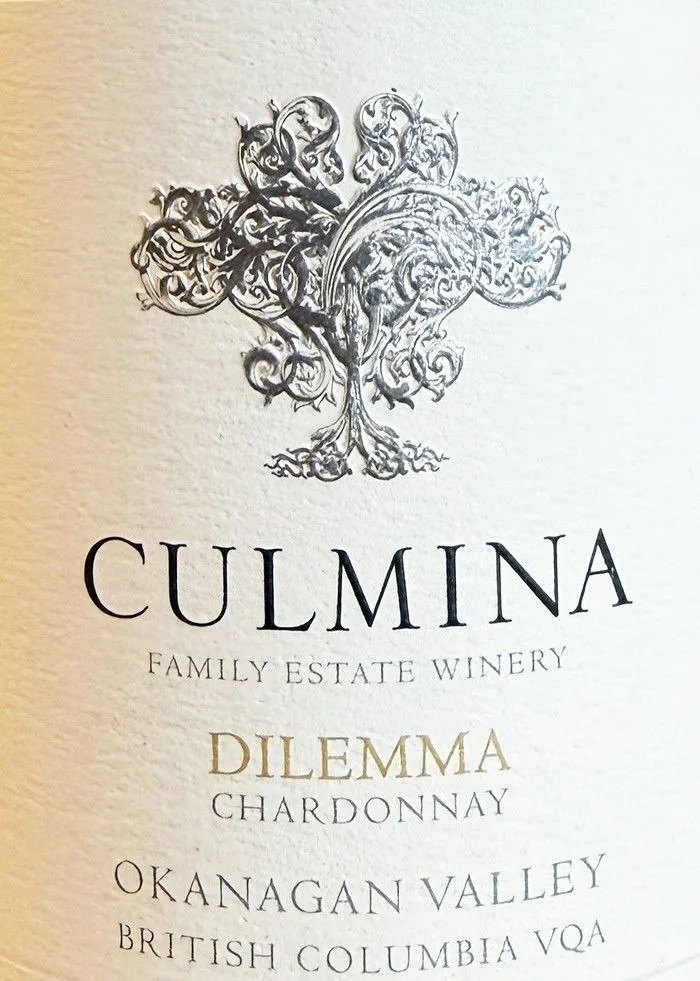 Culmina Family Estate Dilemma 2023, Golden Mile Bench, Okanagan Valley, B.C.
Culmina Family Estate Dilemma 2023, Golden Mile Bench, Okanagan Valley, B.C.
$23 I 89/100
UPC: 827413000768
Expect a creamy expression that reflects a contemporary New World Chardonnay profile, with notes of orange, honey, lemon curd, ripe pear and hazelnuts. Dilemma falls on the richer style of Chardonnay, but with some freshness. It pairs well with lobster or halibut, as well as with dishes such as mushroom risotto or seasoned roasted cauliflower with pine nuts, currants and pecorino. The Dilemma vines are cultivated at an elevation of 580 metres on the Golden Mile Bench at Margaret’s Bench Vineyard.
Value wine of the week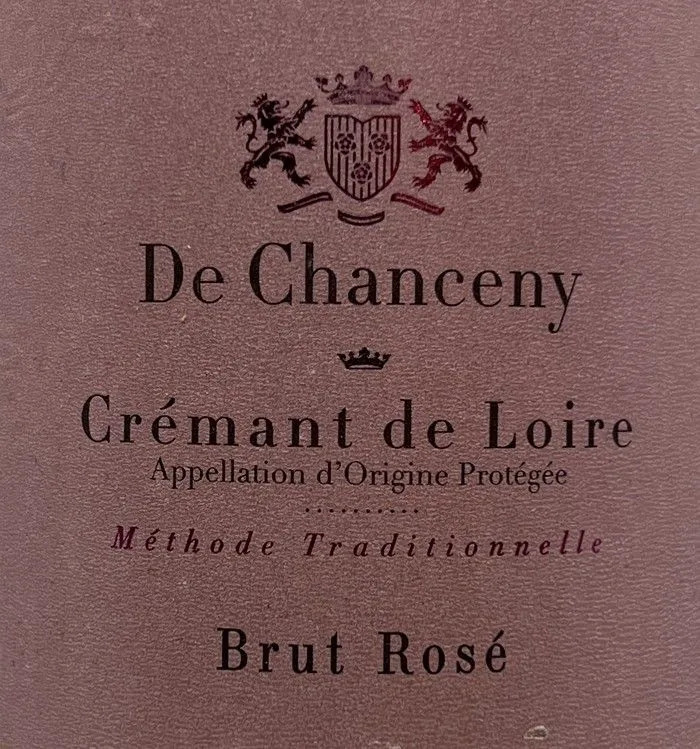 De Chanceny Crémant de Loire Brut Rosé N/V, Loire, France
De Chanceny Crémant de Loire Brut Rosé N/V, Loire, France
$28.49 I 89/100
UPC: 185961000020
The De Chancey Crémant de Loire Brut Rosé is nothing if not consistently well made. A blend of Cabernet Franc and Grolleau, it spends at least 18 months in the cellar on its lees before being disgorged, resulting in a creamy palate of refined bubbles. Its pale pink colour evokes a mix of red berries, pepper and leafy rhubarb jam with perfect acidity. A stylish rosé versatile enough to be served with light seafood appetizers, richer proteins or raspberry tarts at dessert.
Related

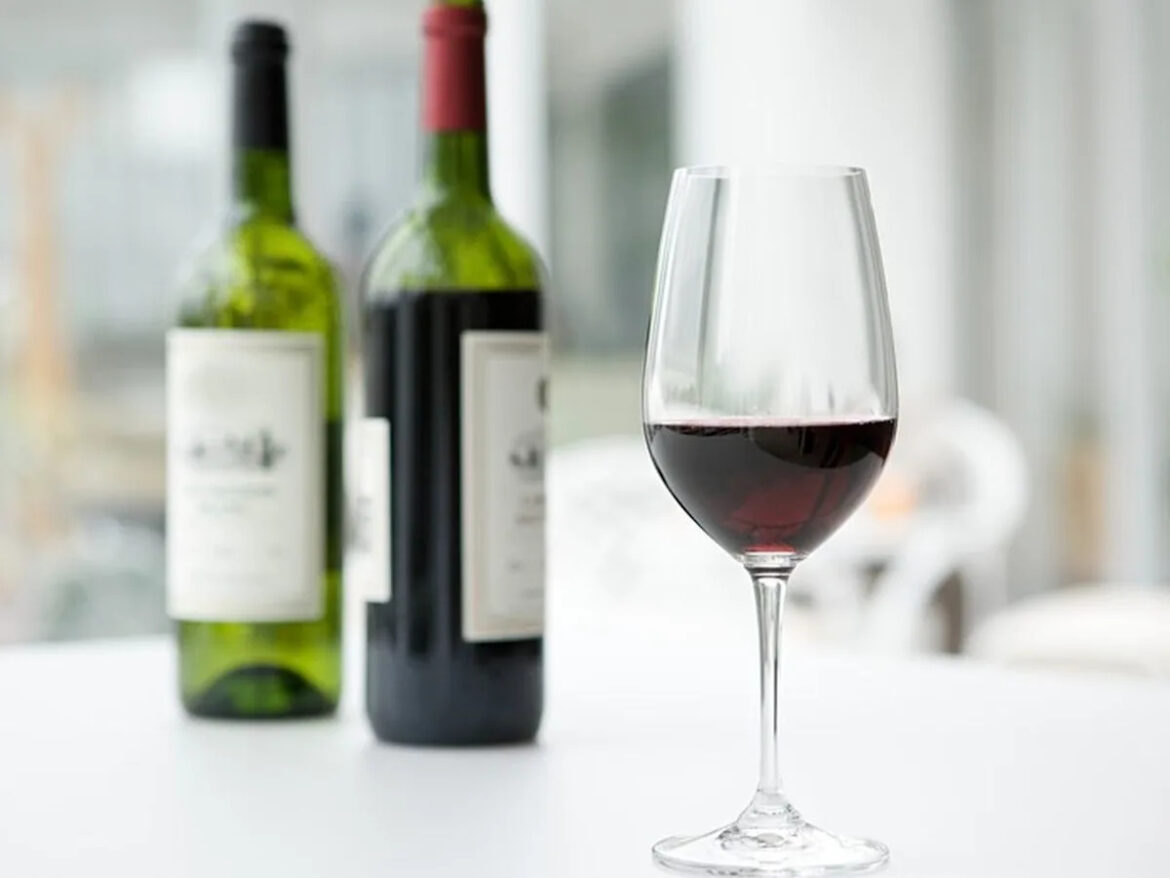
Dining and Cooking